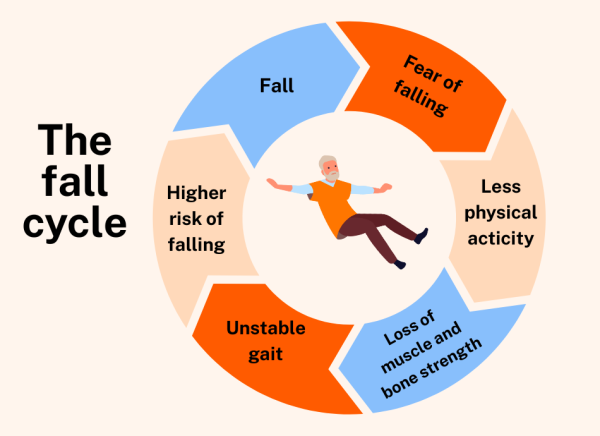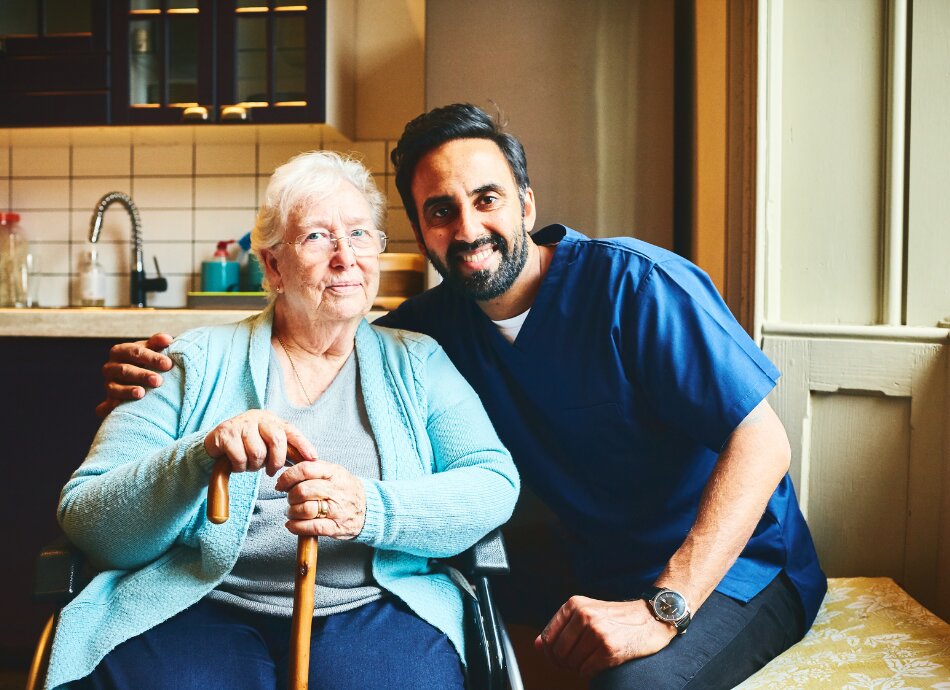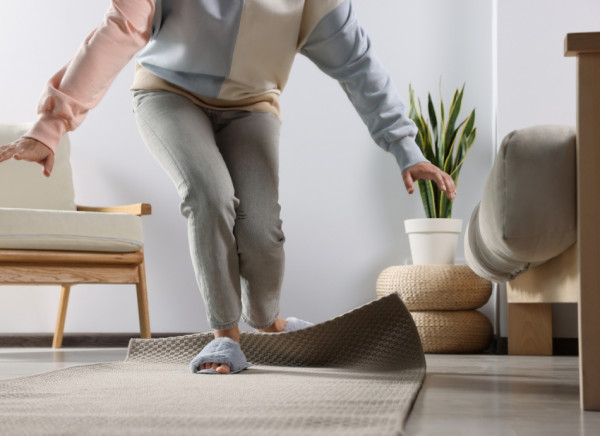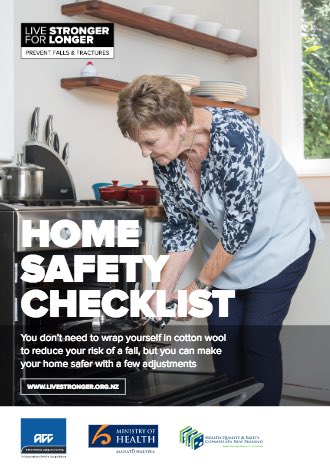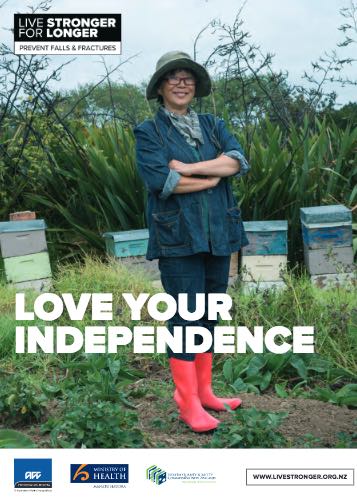Each year about one-third of all New Zealanders over age 65 will fall at some time. Many of these falls result in broken bones.
You can play a role in preventing falls by doing taking the following steps:
Exercise regularly
Regular exercise is important in preventing falls. Benefits include:
- improved balance, muscle strength and flexibility
- stronger bones
- more energy
- better sleep
- better control of blood pressure, blood glucose and weight.
Lack of exercise can lead to weak legs, which increases the chances of falling. Any increased exercise is helpful.
General fitness can be improved by walking for 30 minutes most days of the week (or three 10-minute walks). You should work hard enough to breathe harder, but you should still be able to speak easily. Start with 5 minutes a day and build up if you need to.
Programmes designed specifically for balance and muscle strength have been shown to reduce the number of falls and injuries resulting from falls by between 30% and 50%. Modified tai chi classes are some of the most common ones. Tai chi is a gentle, controlled series of movements that help you develop strength, flexibility and balance. Find an exercise class near you(external link).
If you're at risk of falling, have a mobile phone nearby when you exercise. Please also stop exercising if you feel dizzy or are having chest pain, and rest if you need to.
Talk to your healthcare provider before starting or increasing any levels of exercise if you're unsure.
Read more about staying active over 65.
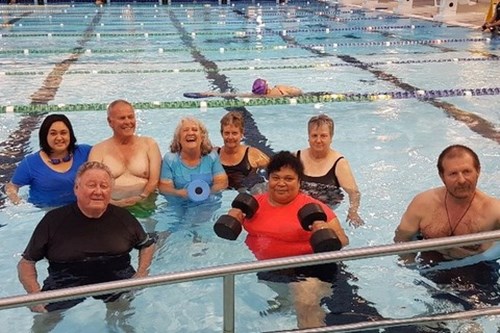
Image credit: Hora Te Pai Health Services
Apps and online resources
In Aotearoa New Zealand, the Live Stronger for Longer website(external link) by ACC, has practical information and advice on how to stay active, well and independent for people over 65 years of age and those caring for them. As well as a variety of resources on falls prevention, you can find community strength and balance classes and download the free Nymbl Training app.
- The Nymbl Training app has a range of body movements and exercises to help you improve and maintain your balance.
- The convenience of an app means that you can do the exercises whenever you want and wherever you are. It's easy to fit into your daily routine.
- The app is completely free and simple to use, and enrolling is easy.
- Learn more about the Nymbl Training app and other falls prevention apps.
Be mindful of your medicine
- Medications, or combinations of medications, may have side effects that can increase the risk of falls.
- Ask your healthcare provider or pharmacist to review all your medicines for side effects such as dizziness or drowsiness.
- Ask if there are medicines any that can be reduced or stopped.
- As you get older and need more medicines, taking them correctly gets harder, so work out a system to make sure you take the right tablets at the right time. Read more tips on how to remember to take medicines.
Read more about medicines and falls risk.
Keep your vision sharp
- Poor vision can make it harder to get around safely.
- Have your eyes checked every year.
- Wear glasses or contact lenses with the right prescription strength.
Read more about eyes and aging and eye tests.
Remove hazards at home
- About half of all falls happen at home.
- Make your home safer by reducing tripping hazards (eg, rugs) and clutter, adding handrails and improving lighting.
- Take care with pets in your home – it's easy to trip over them.
- Make sure you wear well-fitting slippers that include a back at the heel.
Follow the home safety checklist below to make sure your home is safe.
